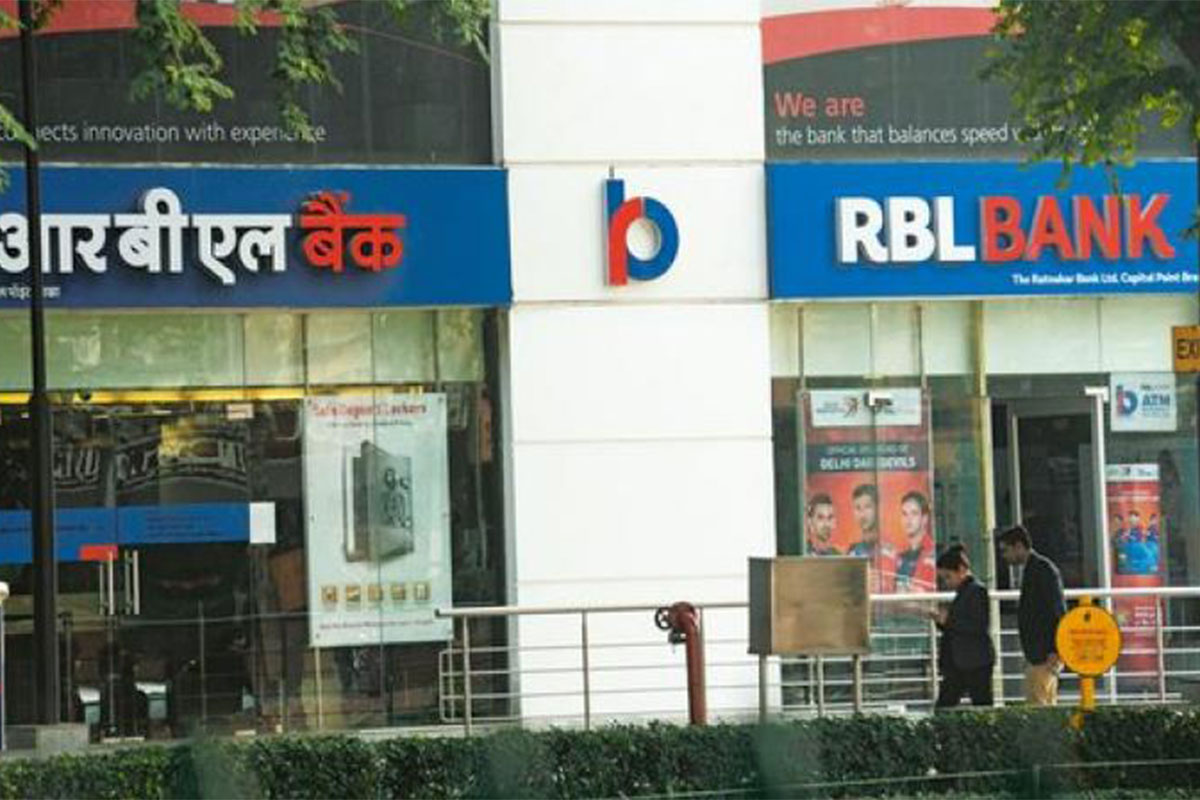RBI permits ICICI-Pru AMC and ICICI-Pru Life to acquire up to 9.95% stake in RBL Bank
The approval has been granted with reference to an application submitted by I-Pru AMC and I-Pru Life to RBI
The bank’s net interest income jumped 38 per cent to Rs 1,021 crore, compared with Rs 739 crore a year ago.

The bank said in the statement that it is well capitalised and has sound liquidity. (Photo: IANS)
RBL Bank on Thursday reported a 54 per cent decline in its net profit to Rs 114 crore for the March 2020 quarter, as the provisioning for bad loans spiked manyfold.
The private sector lender had registered a net profit of Rs 247 crore in the corresponding quarter of the previous financial year. Sequentially, the bank posted a net profit of Rs 70 crore in the third quarter ended December 2019.
Its total net income, however, grew 33 per cent to Rs 1,522 crore in the January-March 2020 period, from Rs 1,148 crore earned in the corresponding period of 2018-19, RBL Bank said in a regulatory filing.
Advertisement
The bank’s net interest income jumped 38 per cent to Rs 1,021 crore, compared with Rs 739 crore a year ago.
The net interest margin (NIM), which is the difference between interest earned and expended, was at a new all-time high of 4.93 per cent in fourth quarter of 2019-20, a rise of 42 basis points as against 4.56 per cent in the year-ago quarter.
For the full year 2019-20, the lender posted a fall of 42 per cent in its net profit to Rs 506 crore as against Rs 867 crore. Income, however, jumped by 39 per cent to Rs 5,540 crore from Rs 3,982 crore.
The bank’s net advances at the end of March 2020 grew by a modest 7 per cent to Rs 58,019 crore, whereas deposits fell 1 per cent to Rs 57,812 crore. Sequentially, both the advances and deposits were down by 3 per cent and 8 per cent, respectively.
Its asset quality showed deterioration with gross non-performing assets (NPAs) rising to 3.62 per cent of the gross advances by the end of March 2020, from 1.38 per cent a year ago.
Net NPAs also spiked to 2.05 per cent from 0.69 per cent.
During the quarter under review, bad loan provisioning and contingencies were raised manyfold to Rs 614.08 crore as compared with Rs 199.97 crore in the year-ago period.
Its Managing Director and Chief Executive Officer Vishwavir Ahuja told reporters that stress due to the COVID-19 pandemic will not be very high because a bulk of the difficulties in the corporate loan book were already recognised.
He added that after nearly a year of recognising and providing for corporate stress — its provisions against doubtful corporate accounts is now 60 per cent -the bank feels the corporate book is a “clean slate” now and its exposure to corona-affected sectors such as travel, aviation, tourism and hospitality is also very small, but feels the retail loans will show an increase in stress as the economy suffers due to the pandemic.
He said that in the current financial year, credit cost, which includes provisioning for soured assets, will also not rise more than 0.10 percentage points as compared with the 3.40 per cent achieved in 2019-20.
The bank has set aside over Rs 100 crore for the coronavirus-related impact on its business which is over and above the regulatory requirement of setting aside Rs 13 crore for assets that may have slipped into the non-performing assets category in March, Ahuja said, hinting that the virus-related provisioning is largely for retail loans.
The bank also spent Rs 180 crore to increase the provision coverage ratio by six percentage points to 64 per cent, while the rest of the provisions were for business as usual largely to take care of corporate loans.
A senior bank official said even though the loans against property is a third of the overall asset book, the bank does not fear stress in the segment because much of the loans are to properties which are self-occupied.
The board of directors at its meeting on March 17 approved an interim dividend of Rs 1.50 per share for the current year. In the previous year, full and final dividend was Rs 2.70 per share. The bank did not declare final dividend for the current financial year pursuant to the Reserve Bank of India’s (RBI) circular in April 2020 directing all banks not to make any further dividend pay-outs from the profits pertaining to the financial year ended March 31, 2020, until further instructions, it said.
Ahuja said the bank has extended the loan moratorium facility to microfinance institutions (MFIs) but not to NBFCs in general as a segment because most of its clients are well rated.
The bank said in the statement that it is well capitalised and has sound liquidity.
“Overall capital adequacy at 16.45 per cent with common equity tier-1 ratio of 15.33 per cent at the end of FY20 and average liquidity coverage ratio is at 161 per cent for Q4FY20,” RBL Bank said.
Shares of RBL Bank on Thursday closed 2.46 per cent down at Rs 128.90 apiece on the BSE.
Advertisement